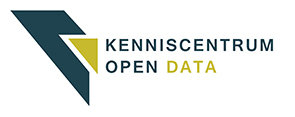Projects
-
The research project ‘Effective Governance of Open Spatial Data’ (E-GOS) will investigate the impact of different models for governing open spatial data on the performance of open spatial data policies in Europe. A case study approach will be implemented, analyzing two countries that are among the leading open data countries in the world: the Netherlands and the United Kingdom. The expected new insights in the performance of the governance models will allow public administrations to optimize their governance model of open spatial data to further the economic and societal impact of open data policies. The project will be executed in close collaboration with the Dutch Ministry of the Interior and Kingdom Relations, the public authority responsible for the implementation of the open government agenda in theNetherlands, and the Open Data Institute in the United Kingdom, one of the pioneering bodies in Europe in the field of open data. The project is supported by a Marie Skłodowska-Curie post-doctoral fellowship, and will be executed by dr. Glenn Vancauwenberghe.
-
The European Union’s policy on open data aims at generating value through the re-use of public sector information, such as geographical data. Open data policies should be applied in full compliance with the principles relating to the protection of personal data as safeguarded in the European data protection legal framework. Increased computer power, advancing data mining techniques and the proliferation of publicly available big data extend the scope of the European data protection legal framework to much more (geographic) data than currently assumed and acted upon and could in effect obstruct the implementation of open data policies in the EU. Given the importance of open (geographical) data for smart city concepts, the imbalance between open data and data protection regulations may block the further development and implementation of smart cities.
This research will apply the requirements for effective co-design of data protection and open data regulations to the smart city domains of transport, energy and eHealth with a view to boosting innovation and strengthening the economy.
- More information: <link en architecture-and-the-built-environment about-the-faculty departments otb-research-for-the-built-environment knowledge-centres geoinformation-governance-knowledge-centre projects spow _blank>www.bk.tudelft.nl/spow
-
Ph.D. Research Frederika Welle Donker
Public sector information forms an important resource for (re)use by citizens and companies. Especially companies can reuse public sector geographical information to create value added products and services, such as navigation systems. However, public sector information is not always accessible. Worse still, a potential reuser may face a number of barriers, such as complex licences or high fees. The European Commission has tried to address these barriers by adopting various directives. However, the expected tsunami of value added products and services has not quite happened yet. The Ph. D. research aims to uncover the real barriers to reusing public sector information for value adding, such as public sector organisations acting in direct competition with the private sector. However, the private sector also cooperates with the same public sector organisations, thus there is a tenuous relationship between the private and the public sector. The research takes into account reuse of public sector information in the land-based geo-sector as well as reuse of hydrographical information in the maritime sector.
-
Ph.D. Research Bujar Nushi

Kenniscentrum Open Data
- 015 - 278 3005
- opendata-bk@tudelft.nl
-
Faculteit Bouwkunde,
TU Delft
Postbus 5043
2600 GA Delft